Opening Plenary: 1:00 – 3:00 pm EDT
[su_button url=”https://afs.confex.com/afs/2020/meetingapp.cgi/Session/9660″ target=”blank” style=”flat” background=”#145593″ color=”#ffffff” size=”10″ center=”yes”]Event page[/su_button][su_spacer]
Registered attendees: See the event page to add this to your schedule (click the plus sign).
The link to join the live session will be visible to registered attendees on the event page shortly before the event begins.
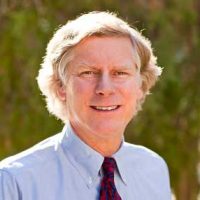
Adaptation Is Necessary, But Not Sufficient: Why It Is Critical (and Feasible) to Stop Climate Change as Fast as Possible
Jonathan Overpeck, Dean of the School for Environment and Sustainability, University of Michigan
Professor Overpeck is an interdisciplinary climate scientist, William B. Stapp Collegiate Professor of Environmental Education and the Samuel A. Graham Dean of the School for Environment and Sustainability at the University of Michigan. He has written over 220 published works on climate and the environmental sciences, served as a Working Group 1 Coordinating Lead Author for the Nobel Prize winning IPCC 4th Assessment (2007), as well as many other awards.
Overpeck has led climate research programs on five continents, focused on understanding climate variability, drought and megadrought dynamics (and risk) the world over. He has appeared and testified before Congress multiple times, is a Fellow of AGU and the American Association for the Advancement of Science, and tweets about climate-related issues @GreatLakesPeck.
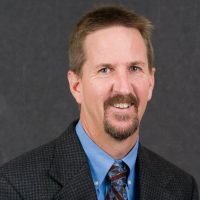
Integrating Science, Policy and Management
Tom Frazer, Ph.D., Director, School of Natural Resources and Environment, University of Florida
Thomas K. Frazer currently serves as Chief Science Officer for the state of Florida. He is also a Professor and Dean of the College of Marine Science at the University of South Florida. Dr. Frazer holds a Bachelor’s Degree in Fisheries Biology from Humboldt State University and a Master’s Degree in Fisheries and Aquatic Sciences from the University of Florida. He earned his Ph.D. in Biological Sciences from the University of California, Santa Barbara. His research addresses contemporary and emerging environmental issues, and it is, by nature, interdisciplinary. His work involves collaborators from disparate disciplines, and it includes sampling and experiments conducted across a wide range of spatial and temporal scales.
During the course of his professional career, Dr. Frazer has garnered substantial research funding to address topics pertaining to water quantity and quality, nutrient dynamics, biogeochemical processes, fish population dynamics, food web interactions, and ecological restoration of degraded ecosystems. He has conducted field research in both freshwater and marine systems around the globe, and he is intimately familiar with a broad suite of environmental and natural resource issues (e.g., eutrophication of fresh, estuarine, and coastal waters; invasive species; and the ecological impacts of contemporary environmental change, including coral bleaching, ocean acidification, and sea level rise). Dr. Frazer has authored and/or co-authored more than 175 peer-reviewed publications, technical reports, and book chapters. He currently serves as Chair of the Gulf of Mexico Fishery Management and is a member of APLU’s Board on Oceans, Atmosphere and Climate.
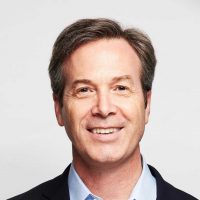
Climate Change in the American Mind
Anthony Leiserowitz, Director, Yale Program on Climate Change Communication
Anthony Leiserowitz, Ph.D. is the founder and Executive Director of the Yale Program on Climate Change Communication and a Senior Research Scientist at the Yale School of the Environment. He is an expert on public climate change and environmental beliefs, attitudes, policy preferences, and behavior, and the psychological, cultural, and political factors that shape them. He conducts research at the global, national, and local scales, including many studies of the American public. He conducted the first global study of public values, attitudes, and behaviors regarding sustainable development and has published more than 200 scientific articles, chapters, and reports. He has served as a contributing author, panel member, advisor or consultant to diverse organizations including the IPCC (AR6), the National Academy of Sciences (America’s Climate Choices), the Smithsonian National Museum of Natural History, the Harvard Kennedy School, the United Nations Development Program, the Gallup World Poll, and the World Economic Forum, among others. He is a recipient of the Friend of the Planet Award from the National Center for Science Education and a Mitofsky Innovator Award from the American Association of Public Opinion Research. He is also the host and narrator of Climate Connections, a national radio program broadcast each day on more than 600 stations and frequencies. Twitter: @ecotone2
Diversity and Inclusion Day Featured Speaker: 1:00 pm EDT
[su_button url=”https://afs.confex.com/afs/2020/meetingapp.cgi/Session/9685″ target=”blank” style=”flat” background=”#145593″ color=”#ffffff” size=”10″ center=”yes”]Event page[/su_button][su_spacer]
Registered attendees: See the event page to add this to your schedule (click the plus sign).
This session is open to all – the link to join the live session posted on the event page shortly before the event begins.
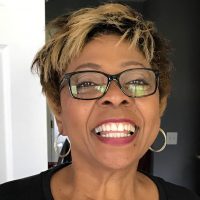
Closing the Distance – Our Fears and Opportunities in the Midst of Social Movements and a Pandemic
Mamie Parker
Dr. Mamie Parker spent nearly 30 years with the U.S. Fish and Wildlife Service (USFWS), serving as the first African American to head a regional office (Region 5), eventually rising to one of the highest positions in the USFWS: assistant director, fisheries and habitat conservation. Through her dedication and professional service, Dr. Parker has promoted demographic diversity by starting career awareness institutes at Tennessee Tech University (with Don Estes) and within the service to assemble minority students from across the country and teach them about careers in fisheries.
Dr. Parker has a documented list of leadership within the fisheries management. After pioneering the establishment of the USFWS’ National Fish Passage Program, she was introduced into the Arkansas Outdoor Hall of Fame in recognition of her being the first Arkansas citizen to head this program. She was also awarded the USFWS’ highest honor: the Ira Gabrielson Award for Leadership and the Presidential Rank Meritorious Service Award, recognizing extraordinary accomplishment in the Department of the Interior.
Over the course of her career, Dr. Parker has become a prominent spokesperson for minorities in the USFWS and throughout the fisheries profession. She has contributed two book chapters emphasizing the importance of encouraging and mentoring minority students in the fisheries profession and has been a pivotal figure in AFS workshops on diversity in the fisheries profession (last year and this year). Although Dr. Parker is now “retired,” she continues to work tirelessly leading strategic dialogues within the profession on how to best attract and retain a diverse workforce. In 2016, Dr. Parker received the Emmeline Moore Prize from AFS and considered to be one of the most qualified candidates to receive this prestigious award. More recently, Mamie was the 2020 recipient of the Bass Pro Shop Founder, John L. Morris Award in recognition of her lifetime commitment to fish and wildlife stewardship as a citizen conservationist.
Science Communication Plenary: 1:00 – 3:00 pm EDT
[su_button url=”https://afs.confex.com/afs/2020/meetingapp.cgi/Session/9661″ target=”blank” style=”flat” background=”#145593″ color=”#ffffff” size=”10″ center=”yes”]Event page[/su_button][su_spacer]
Registered attendees: See the event page to add this to your schedule (click the plus sign).
The link to join the live session will be visible to registered attendees on the event page shortly before the event begins.
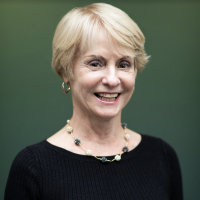
FISHTALES – Pitching Your Story to the Media
Wednesday, September 16, 1:00 p.m. EDT
Marcy McGinnis: media and communications trainer and professional career coach; former CBS News executive and producer; former facilitator, trainer, and founding member, Alan Alda Center for Communicating Science
Broadcast news veteran Marcy McGinnis will share the inside scoop on decision making in the news business. She will explain the journey of a news story – how an idea becomes an actual two or three-minute story on a news broadcast. She’ll explain what reporters and producers look for and how to avoid common mistakes and pitfalls when pitching your ideas. And she will share some examples of compelling science-related stories that aired on CBS News.
About Marcy McGinnis
Marcy McGinnis’s career at CBS News spanned over three decades. She began as an entry-level secretary and rose through the producing ranks (assistant producer, associate producer, producer, senior producer, executive producer) in New York followed by an international assignment first as the London deputy bureau chief and then as London bureau chief and VP for Europe, Africa, and the Middle East. She was promoted to senior vice president and served as second-in-command at CBS News for 8 years, running worldwide news coverage and newsgathering. She was at the helm of the network’s coverage of 9/11, the wars in Iraq and Afghanistan and Hurricane Katrina among others. She also trained, coached and mentored news personnel from entry to senior levels.
After CBS News, McGinnis became the founding associate dean of the Stony Brook University School of Journalism. She helped create the curriculum for the new journalism program and the new facilities including a newsroom, studio and control room. She taught and mentored hundreds of future TV, radio, print and digital journalists. McGinnis was also instrumental in the creation of the Alan Alda Center for Communicating Science and remains part of the team that trains scientists in the U.S. and around the world. She also helped create the Marie Colvin Center for International Reporting and the Center for News Literacy. Following her tenure with Stony Brook University, McGinnis joined the startup team of Al Jazeera America where she ran its worldwide newsgathering operation for 2 years.
McGinnis now uses her extensive experience as a journalist, news executive and academic leader to help others with their professional career paths and communication needs. A certified professional career coach, her coaching focuses on helping individuals navigate and manage their careers, so they reach their full potential and overcome their communication challenges. She is a strong believer that empathy, integrity and self-awareness are the foundations and motivating and inspiring forces of successful leadership. McGinnis also helps professionals improve their presentation skills – in all formats – one-on-one situations, in front of small or large audiences, and with the media including how to interact with television, radio, podcasts, print, and digital outlets. Twitter: @marcyamcginnis.
United Kingdom and Europe Theme Day Plenary: 1:00 – 3:00 pm EDT
[su_button url=”https://afs.confex.com/afs/2020/meetingapp.cgi/Session/9665″ target=”blank” style=”flat” background=”#145593″ color=”#ffffff” size=”10″ center=”yes”]Event page[/su_button][su_spacer]
Registered attendees: See the event page to add this to your schedule (click the plus sign).
The link to join the live session will be visible to registered attendees on the event page shortly before the event begins.
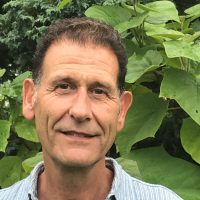
Threats and opportunities for sustainability in marine fisheries: a European perspective
Gary Carvalho, President, Fisheries Society of the British Isles, and Research Professor of Molecular Ecology at Bangor University
Gary Carvalho is Research Professor of Molecular Ecology, based in the Molecular Ecology and Fisheries Genetics Laboratory, Bangor University, UK, and held former positions at Swansea and Hull Universities, UK. He is currently President of the Fisheries Society of the British Isles, member of the Advisory Group to the IUCN Species Survival Commission Specialist Group on Conservation Genetics, Member of the Evidence Advisory Group, Natural Resources Wales, and recent Chair of the ICES Working Group on Application of Genetics in Fisheries and Aquaculture. He has aimed throughout to render genetic concepts and tools more accessible to marine wildlife, fisheries and aquaculture managers, environmental and conservation biologists. Contributions in particular have been to the demography and population structure of wild fish populations by applying molecular genetic approaches. Many studies have dispelled long-held beliefs depicting marine fishes as comprising large, unstructured populations that are slow to react to environmental pressures and exploitation. For example, his work on European anchovies, Atlantic cod and Atlantic herring showed fine scale population structure, that have immediate and important application for the management of the species. Projects on New Zealand snapper, guppies and cod revealed rapid genetic changes in exploited populations and remain the most cited articles demonstrating rapid evolution in overexploited stocks. Carvalho received the Beverton Medal in 2018 for groundbreaking research in fish and fisheries science. In addition to research, he has taught population genetics and evolution in the context of natural resource management for 30+ years, and was co-convener of the first ICES training course to focus on utility of genetics in fisheries and aquaculture held last year in Portugal. He is a current Editor of Fish and Fisheries and the Proceedings of the Royal Society, London, B.

Scientific Advice to the Common Fisheries Policy of the European Union: A Square Peg in a Round Hole?
Jann Martinsohn, Head of the Water and Marine Resources Unit, European Commission Joint Research Centre
Jann Martinsohn is Head (f.f.) of the Water and Marine Resources Unit at the European Commission Joint Research Centre. He and his team focus on scientific advice to European Union (EU) freshwater and marine policies and governance. He contributes in particular to the Common Fisheries Policy and the EU Blue Growth Strategy. His specific interest is to contribute to the European Union Common Fisheries Policy, the Blue Growth Strategy and the introduction of genetic and genomic approaches to marine conservation as well as fisheries and aquaculture management.
After two years of civil service, working as a rescue driver and paramedic and providing individual care for severely disabled people, Jann studied molecular biology specializing in immuno- and evolutionary genetics. He also graduated in marine science while living in New Zealand, where he studied at the “southernmost university of the world” and worked on a deep sea trawler targeting orange roughy, black dory and hoki around the Southern island. Jann holds a diploma in marine science (University of Otago, New Zealand) and a Ph.D. in immunogenetics (University of Cologne , Germany). He was a Marie Skłodowska-Curie fellow in Miroslav Radman’s department of Evolutionary and Medical Genetics at the research faculty of Necker-Enfants Malades (Paris, France), where he worked on in-vivo directed evolution.
Jann has co-organised international conferences, has been steering committee member of acclaimed projects, contributed to FAO fisheries groups as well as scientific support to the European Commission and the European Parliament, and is elected chair of the Working Group on Applied Genetics for Fisheries and Aquaculture (WGAGFA) under the remit of the International Council for Exploration of the Sea (ICES).
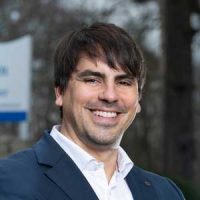
Key Challenges for Recreational Fisheries in Central Europe
Robert Arlinghaus, Fisheries Professor, Leibniz-Institute of Freshwater Ecology and Inland Fisheries, and Humboldt-Universität zu Berlin
Robert Arlinghaus is an interdisciplinary fisheries scientist and professor at Leibniz-Institute of Freshwater Ecology and Inland Fisheries and Humboldt-Universität zu Berlin. He is author of over 250 scientific papers, editor of the journal Fish and Fisheries, and recipient of multiple awards, including the medal by The Fisheries Society of the British Isles, the Award of Excellence in Fisheries Management, and the Award of Excellence in Public Outreach by AFS. Twitter: @RArlinghausFish.
Latin America Theme Day Plenary: 1:00 – 3:00 pm EDT
[su_button url=”https://afs.confex.com/afs/2020/meetingapp.cgi/Session/9666″ target=”blank” style=”flat” background=”#145593″ color=”#ffffff” size=”10″ center=”yes”]Event page[/su_button][su_spacer]
Registered attendees: See the event page to add this to your schedule (click the plus sign).
This event is open to all – the link to join the live session will be posted on the event page shortly before the event begins.
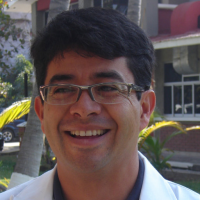
Breaking Down Barriers to Fisheries Conservation in the Americas: Challenges and Future Implications
Felipe Amezcua Martinez, Instituto de Ciencias del Mar y Limnología, Universidad Nacional Autonoma de Mexico, Mazatlan, Mexico
Felipe Amezcua is a research professor at the Institute of Marine Science and Limnology of the National University of Mexico and is based at a station of the Institute in Mazatlan (Gulf of California). He specializes in the ecology of estuarine and coastal fish of the Gulf of California as well as small-scale fisheries. He completed his undergraduate studies in Biology at the Faculty of Science from the National University of Mexico and received his Ph.D. in Marine Biology from the University of Liverpool (UK).
Felipe has extensive experience in the fin fish fauna of the coastal areas of the SE Gulf of California, and has worked and participated in projects and workshops on conservation, and fisheries management, and regulation with governmental entities in Mexico, as well as with international institutions and organizations such as Ecologists Without Borders, the Federal University of Pernambuco and others.
His project experience includes research on fisheries and the carrying capacity of reservoirs and estuarine areas to develop management plans; the effects of fisheries on the fish fauna, trophic ecology and ecological connectivity of estuarine areas and the adjacent marine environments; public policy and its relation to sustainable resource use by small scale fishers, and more recently, the use of otoliths and vertebrae to determine migration patterns of fish and sharks, and the presence of microplastics in fish.
He is actively involved with fisheries associations and has served as President of the Mexican Fisheries Society, as well as the Mexico Chapter and the International Fisheries Section of the American Fisheries Society.
Canada Theme Day Plenary: 1:00 – 3:00 pm EDT
[su_button url=”https://afs.confex.com/afs/2020/meetingapp.cgi/Session/9668″ target=”blank” style=”flat” background=”#145593″ color=”#ffffff” size=”10″ center=”yes”]Event page[/su_button][su_spacer]
Registered attendees: See the event page to add this to your schedule (click the plus sign).
This event is open to all – the link to join the live session will be posted on the event page shortly before the event begins.
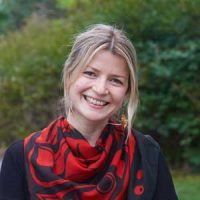
Indigenous Fisheries: Past, Present and Future
Andrea Reid, incoming Assistant Professor with the University of British Columbia’s Institute for the Oceans and Fisheries
Dr. Andrea Reid is a citizen of the Nisga’a Nation and an incoming Assistant Professor with the University of British Columbia’s Institute for the Oceans and Fisheries (starting January 2021). There, she will lead the Indigenous Fisheries Research Unit, working to build a national and international hub for the study and protection of culturally significant fish and fisheries. Her research program adopts highly interdisciplinary and applied approaches to improving our understanding of the complex interrelationships between fish, people and place. Reid’s PhD in Biology (Carleton University ’20) centered on multiple stressor effects on Pacific salmon, using tools and insights from Western and Indigenous sciences in tandem. Reid is a cofounder of Riparia, a Canadian charity that connects diverse young women with science on the water to grow the next generation of water protectors. She is also a National Geographic Explorer (Grantee ’12,’15,’16,’19) and a Fellow of The Explorers Club (FI’19). Twitter: @andreajanereid.
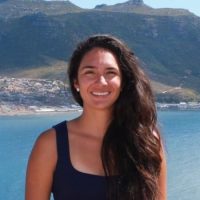
A Brief History of Fisheries in Canada
Rowshyra A. Castañeda, Post-doctoral fellow at Great Lakes Laboratory for Fisheries and Aquatic Sciences, Fisheries and Oceans Canada
Rowshyra is currently a Postdoctoral Fellow at the Great Lakes Laboratory for Fisheries and Aquatic Sciences at Fisheries and Oceans Canada (DFO). She completed her BSc in Biology at McGill University (2010), where participated in two field semesters abroad, in Panama and in East Africa (Kenya, Tanzania, and Uganda), to attain a minor in Field Studies. She completed an MSc supervised by Prof. Anthony Ricciardi at McGill University (2013). Her Master’s research was focused on the population dynamics of an invasive bivalve, Asian clam, that was limited to a thermal plume created by a nuclear power plant. She then worked as a lab manager for the Ricciardi Lab for a year and completed a project on microplastics population in the St. Lawrence River. She went on to complete her Ph.D. at the University of Toronto and University of Toronto Scarborough with Prof. Nicholas Mandrak (November 2019). She was co-supervised by Prof. Olaf Weyl at the South African Institute for Aquatic Biodiversity (SAIAB), where she was affiliated and spent two semesters. Rowshyra’s research was focused on developing the use of underwater cameras to detect and quantify rare freshwater fishes (imperiled and early invaders). She did her field work in waterbodies in Ontario, Canada, and in multiple provinces in South Africa. Her current research is focused on threats and recovery of imperiled freshwater fishes and the ecology and impacts of invasive freshwater fishes and invertebrates. She is an Associate Editor for the journal Biological Invasions. Aside from research, Rowshyra is passionate about creating inclusive and diverse spaces and has volunteered on several committees and for non-profit organizations that promote and take action on increasing equity, diversity, and inclusion in STEM. Twitter: @rowshyra.
Closing Plenary: 1:00 – 3:00 pm EDT
[su_button url=”https://afs.confex.com/afs/2020/meetingapp.cgi/Session/9669″ target=”blank” style=”flat” background=”#145593″ color=”#ffffff” size=”10″ center=”yes”]Event page[/su_button][su_spacer]
Registered attendees: See the event page to add this to your schedule (click the plus sign).
The link to join the live session will be visible to registered attendees on the event page shortly before the event begins.
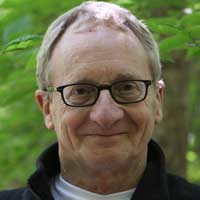
What Billy Frank Jr. Teaches Us about Fisheries—and Ourselves
Larry Nielsen, North Carolina State University, Professor Emeritus
 Larry A. Nielsen is Professor Emeritus of Natural Resources at North Carolina State University. A native of Chicago, he has degrees from the University of Illinois, University of Missouri and Cornell University. He spent 40 years as a faculty member and administrator at Virginia Tech, Penn State and NC State. He has been a Department Head, School Director, College Dean and University Provost. He is a highly regarded public speaker, frequently delivering keynote lectures and leading workshops on higher education and natural resources. He is author of more than 100 publications, including two recent books: Provost: Experiences, Reflections, and Advice From a Former “Number Two” on Campus, and Nature’s Allies, 8 Conservationists who Changed our World. He is a Fellow of the American Fisheries Society and was an Alumni Distinguished Undergraduate Professor at NC State before retiring in January, 2018. In 2020, he was awarded the Excellence in Education Award by the American Fisheries Society, based on his career achievements.
Larry A. Nielsen is Professor Emeritus of Natural Resources at North Carolina State University. A native of Chicago, he has degrees from the University of Illinois, University of Missouri and Cornell University. He spent 40 years as a faculty member and administrator at Virginia Tech, Penn State and NC State. He has been a Department Head, School Director, College Dean and University Provost. He is a highly regarded public speaker, frequently delivering keynote lectures and leading workshops on higher education and natural resources. He is author of more than 100 publications, including two recent books: Provost: Experiences, Reflections, and Advice From a Former “Number Two” on Campus, and Nature’s Allies, 8 Conservationists who Changed our World. He is a Fellow of the American Fisheries Society and was an Alumni Distinguished Undergraduate Professor at NC State before retiring in January, 2018. In 2020, he was awarded the Excellence in Education Award by the American Fisheries Society, based on his career achievements.
Special Discussion on the Future of Fisheries with a Panel of AFS Fellows
- Micheal S. Allen, Director- Nature Coast Biological Station and Professor of Fisheries and Aquatic Sciences at the University of Florida/IFAS
- Kai Lorenzen, Professor & Program Leader, Fisheries and Aquatic Sciences, Associate and Director, School of Forest Resources and Conservation, University of Florida/IFAS
- Jesse Trushenski (MODERATOR), Chief Science Officer for Riverence
- Michael C. Quist, Idaho Coop Fish and Wildlife Research Unit, University of Idaho
- Douglas Beard, Jr., Chief of the USGS, National Climate Adaptation Science Center
- Gary Whelan, Program Manager, Michigan Department of Natural Resources
- Julie Claussen, Director of Operations, Fisheries Conservation Foundation and President, AFS Science Communications Section
- Gwen White, Adjunct Instructor , Ivy Tech Community College – Indianapolis, and Indiana University – Bloomington
- Pat Mazik, USGS, West Virginia Cooperative Fish and Wildlife Research Unit, West Virginia University
- Cecil Jennings, USGS, Georgia Cooperative Fish and Wildlife Research Unit, University of Georgia.
